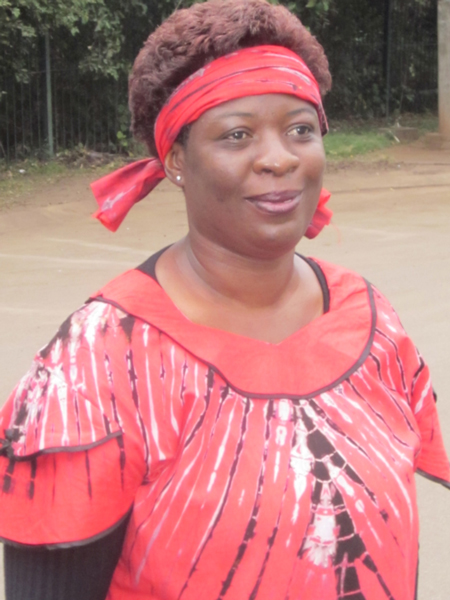The ten-person outbound Rotary Friendship Exchange group from District 9800 to Africa’s D9210 has had some surprises during its three-day hosting in Victoria Falls, Zimbabwe.
Victoria Falls is a relatively prosperous part of Zimbabwe, only a kilometre from the cataract and attracting hordes of hard-currency tourists.
The town is so closely linked to the surrounding national game park that elephants often wander into the suburbs knocking down walls to get at garden trees. Packs of warthogs, tails lifted at 90 degrees, scurry down the sidestreets without attracting a second glance.
District 9210 covers Zambia, Malawi, Zimbabwe and Mozambique. Our team expected depressed conditions inside Zimbabwe. Instead, it discovered a thriving tourist town and a local Rotary Club kicking goals (with some difficulty) on significant charity projects.
A sign of the country’s previous crises is the souvenirs sold to tourists in Victoria Falls by street hawkers – 50 and 100 trillion (yes, trillion!) dollar ex-official banknotes.
One of our hosts was Barbara Murasiranwa, past Assistant Governor of D9210 and a stalwart of RC Victoria Falls. Barbara was until June 2011 managing director of a thriving tourist operator in Victoria Falls, Shearwater Adventures, which pioneered white water rafting, helicopter rides, canoeing adventures, jet boating and bungy jumping from Livingstone Bridge by the falls (this is a joint and hair-raising Zimbabwe-Zambian business). Barbara now runs her own wholesale travel company and can afford to devote more time to the Rotary club.
Zimbabwe’s recent economic turnaround – based partly on a switch to US dollar and Rand currency - has led to a revival in Rotary membership.
In 2005 the club fell to only twenty members from the original charter member total of 33 in 2002.
The club still has some members who are struggling to pay their dues. The club fund-raises with small events to help them out.
Barbara is among a small group of members who donate significant amounts to the club and the District.
It has now revived to 26 members but half a dozen are inactive and are being weeded out in favour of new young recruits, she says.
Other membership problems include the need for many members to work long hours in their jobs, and high turnover as businesses re-locate staff.
Barbara says, ‘Westerners who have not travelled here, naturally believe all the bad things about Zimbabwe they read and see in the media. They think that there is nothing standing here, and that all the infrastructure is in ruins, and that everyone can barely survive.
‘It is true there is some starvation in some parts of my country but the average educated person here is doing well and now has the ability to think about charity work.’
Some years ago external donors to the country pulled back, she says, and RI also minimised funding from 2000-2009 due to the many uncertainties surrounding Zimbabwe’s stability.
Because the District encompasses other countries like Zambia which were viewed by the Westerners as less risky, funds still found their way into the District with no problems and clubs like RC Victoria Falls benefited immensely.
‘Even now, Zimbabwe cannot host Group Study Exchange teams from the US, but such teams can go to the other three countries in District 9210. However, the use of the US dollar in Zimbabwe does allow us to send GSE teams to the US.
Major projects just completed by the club include building two classrooms at Chamabondo Primary School, and an ablution block for the Chinotimba aged care home.
Our D9800 Friendship Exchange party from Victoria toured both projects – and was impressed by their quality.
The club has also fitted out local classrooms with donated chairs and desks. A problem is that to raise funds, the schools have to hire out their rooms on Sunday to churches which lack their own buildings, and scores of adults singing and dancing in the small classrooms cause the children’s desks to crack up within a year or two.
The club’s income for 2010-11 was USD31,000 (raised locally and from overseas donors). I asked Barbara how, in an area with such huge needs for charity, the clubs prioritised their projects. She says, ‘We look to strategic goals within our ability. We must be focused. It might be water supply in one year, or literacy in another, providing books, school hardware and scholarships to bright children – which are very expensive. We can’t scatter our funds.
‘We also have nine bingo nights annually where we take our kids, who love it,’ Barbara says. ‘I am proud to be a Rotarian.’
District 9210 has 58 clubs, most with 20-30 members but a few with 60+. Because they are so far apart, and communications are poor, 15 assistant governors each look after a handful of clubs only.

